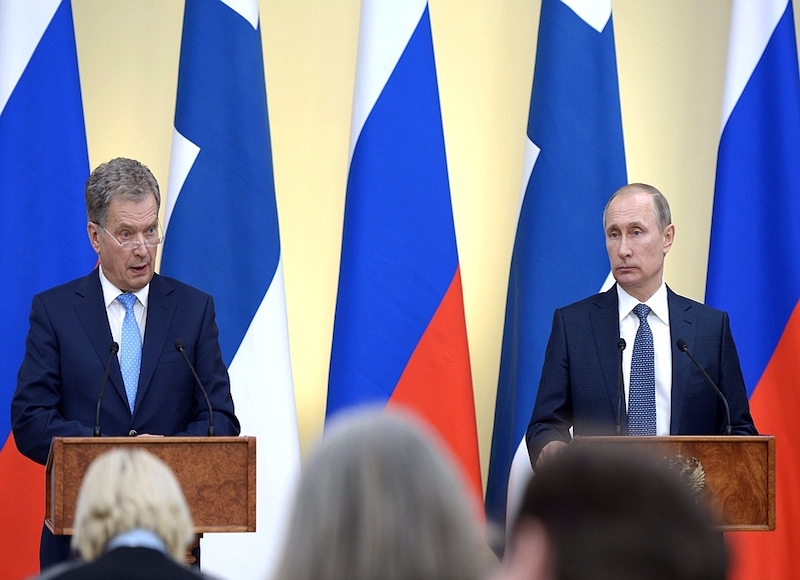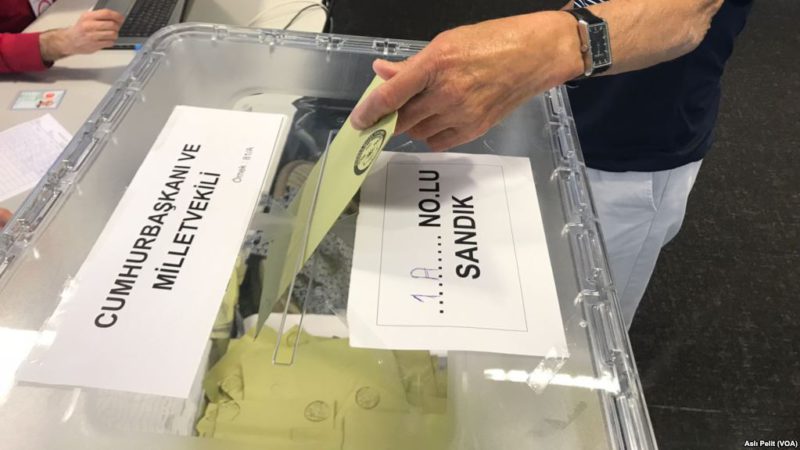Current relations between Russia and some Western nations resemble the contentious dynamics that were witnessed during the Cold War era. Hostility and tensions are high between leaders of these Western nations and Vladimir Putin, while NATO’s increased presence in the Baltic region further demonstrates that relations with Russia are more strained than ever.
The fear of escalating Russian aggression has brought NATO to consolidate its troops in Eastern and Central Europe. In addition to fulfilling its obligation to the security of member states, NATO is also collaborating with Finland and Sweden on defence matters. Although neither of the two Nordic countries are official members of NATO, they have, for a long period of time, established relations with the alliance through, for example, joint military exercises. During the past couple of years, Finland has reinforced its interest to cooperate with prominent NATO member states, such as the U.S. and the U.K., through introducing bilateral military agreements.
Finland shares a 1,340 km long border with Russia, and the two countries have been at war with each other twice. After World War II, Finland evolved from a rural and newly independent country to an EU member, ranking amongst the most technologically advanced and educated countries in the world. Finland has undoubtedly affiliated itself with the Western world order, yet has chosen to refrain from joining NATO. Even though Finland’s general public perception of Russia has been less antagonistic after the dissolution of the Soviet Union, Finns are concerned due to their geographic proximity to the former communist country. From a geopolitical point of view, exposure to military conflict may be enhanced if the countries in question share a long border.
Finnish president Sauli Niinistö has openly declared that he does not believe that joining NATO would be more strategically advantageous than preserving the status-quo as a neutral country. The President believes that Russian relations have improved, understanding that Russians may perceive a Finnish-NATO membership as a direct security threat. Niinistö’s diplomatic attitude is possibly a deliberate choice, so as to avoid confrontations with its powerful neighbour. From an economic point of view, it is understandable that Niinistö wants to avoid alienating Russia. The trade relationship between the two countries is of great significance, even though Finnish exports to Russia have notably diminished after the E.U. imposed sanctions on Russia for the Crimea annexation.
Putin’s concern over a potential Finnish-NATO membership is quite straightforward: such an action would have serious consequences, as Russia could respond by moving troops closer to the Finnish border (Putin claims that these troops have been withdrawn, yet this assumption is contested in Western media). During his visit to Helsinki in July 2016, Putin confirmed that it is not in Russia’s interest to wage war against Finland, but if Finland decided to join NATO, it would inherently alter the relations between the two countries.
This year, Finland celebrates its 100th independence anniversary, and a strong commitment to defend the country is deeply ingrained among Finns. Polling results show that up to 80% of the population perceive that national defence is a very important policy realm. It partly reflects the pride that Finnish people take in having avoided a Russian occupation during World War II. However, according to a survey conducted in 2016, no more than a quarter of Finns would vote in favour for a NATO membership. Interestingly, the same survey shows an increase in the number of Finns who view Russia as “a negative influence,” while the support to join NATO has declined. Such results could indicate that Finnish people oppose Russia’s political approach on the international arena, yet do not feel threatened enough to consider abandoning the neutrality of their country. Therefore, the general conception amongst the public might be that the benefits of joining NATO simply do not exceed the potential risk of a contentious Russian response to such an action.
Finally, there is an important point that Finnish politicians might not publicly articulate, since it could portray Finland as a free-rider of NATO’s services: if Russia was to militarily confront Finland, it is likely that NATO would step in, or at least offer its help. Due to NATO’s firm interest in combating Russian aggression, it could presumably take the opportunity to defend a Western ally, even though Finland is not an official member of the alliance. Thereby, one could argue that Finland is, to some extent, free-riding on the collective security organization that it is not formally part of, nor obliged to, financially contribute to. As such, NATO and Finland’s joint interest in avoiding a Russian military offensive and preserving peace in Europe can be seen as a safety reassurance for Finland.
Photo: “News conference following Russian-Finnish talks. With President of Finland Sauli Niinisto” (2016) by Presidential Press and Information Office via kremlin.ru . Licensed under CC BY 4.0.
Disclaimer: Any views or opinions expressed in articles are solely those of the authors and do not necessarily represent the views of the NATO Association of Canada.




